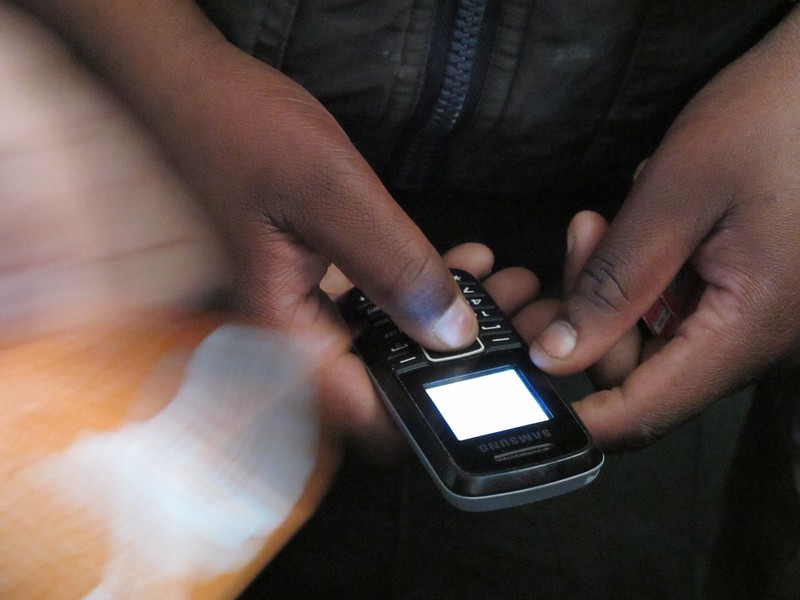Jasmine Nnenne Mbadugha explores how business women in Africa are being disadvantaged by a lack of access to e-commerce and other digital tools and makes recommendations for how to tackle this digital gender gap.
Until quite recently, going to the market (think an open flea market) was the only way to buy essential goods and services for women in many parts of Africa. If they could haggle effectively, they might have even gotten a small discount from enterprising sellers. While this might still be the norm for plenty of women, new technologies have disrupted the way many others sell and shop for goods.
The emergence of electronic commerce (e-commerce) in Africa has transformed traditional trade, goods and services are becoming digitally accessible through online transactions. Small and Medium Enterprises can now utilise new technologies like e-commerce to manage cumbersome business processes. E- commerce can enable local buyers and sellers from developing countries to enter formerly elusive global markets, which can have a ripple effect on the economy. According to a study by McKinsey and company, e-commerce has the potential to account for 10% of retail sales in African economies by 2025, which could lead to an annual revenue of over $75 billion. Trade liberalisation coupled with improved technical advancements like fintech, mobile phones and internet connectivity have boosted the growth of electronic commerce over the years. However, the e- commerce boom poses the risk of excluding traditional female traders, primarily those in the rural areas and the informal economy.
Women have a key role to play in Africa’s e- commerce boom, but the digital divide – the gap between those who have access to digital technologies and those who don’t – has threatened their advancement. Historically, countries who have a higher GDP tend to be more technologically equipped than those who might have a lower GDP. In Africa, the gap is evidenced between women and men – especially in the rural areas. The digital divide in Africa affects women at a disproportionate rate; and thus, women are being left out of the digital economy. According to the International Telecommunication Union (ITU), in developing countries, only 19% of women utilise the internet. A lack of digital education means that women are still not up to speed with digital business skills like digital sales and marketing.
For many women, especially those who are accustomed to brick-and-mortar marketplaces, the cost of putting up a digital store on e-commerce platforms like Jumia and Takealot.com might be a prohibiting factor. The most vulnerable people in society have not yet benefited from digital commerce, despite it being hailed as a simple, inclusive, and affordable tool to enable economic development. In a digital utopia, a female farmer in Ghana who produces cocoa should be able to connect with potential customers in Switzerland. Contrarily, global trade encounters multiple obstacles to enable this kind of trade.
Trade liberalisation and digitisation
Digital marketplaces, fintech-enabled payment options, and logistics which make up the traditional components of the e-commerce ecosystem have lowered trade barriers on a global scale. Cross-border trade in Africa has historically been prohibited by strict border customs regulations and adverse trade policies. The African Continental Free Trade Area (AfCFTA) was established in 2020 to address this. The fundamental objective of the AfCFTA is to establish a compartmentalised market where products and services can be easily sold and delivered across the African continent.
The AfCFTA is the first deal of its type to unite all 55 African nations under a free trade zone, with a focus on establishing a common market for products, services, and investment as well as enabling the free movement of Africans. According to the AfCFTA’s promises, removing barriers like expensive customs processes and clearance fees will encourage foreign exchange, socioeconomic growth, financial inclusion, and possibly gender equity. Economically, trade liberalisation favours those who earn more money, have more assets, and can take out more business loans. In other words, because men have more opportunities for economic advancement, trade liberalisation in Africa largely benefits men.
Due to the fact that financial services are now being made available to women who may have previously been underbanked or unbanked, fintech promises to increase financial inclusion for women and spur on their participation in digital commerce. Fintech has reduced barriers to the expansion of e-commerce in Africa; once-complicated payment processes have been eased by digital transactions and African business players can draw customers anywhere in the world.
Some African e-commerce businesses like Jumia have adopted fintech into their services, offering loans, insurance, and other banking services to women who may not have been able to do so via a traditional bank. Some have even ventured to help vulnerable women build their managerial and financial abilities. For example, Jumia, the “Amazon” of Africa, offers microloans to business entrepreneurs who use their platform.
Even with these developments, vulnerable women –those who may lack a formal education and have restricted access to data— still do not fully benefit from the digital commerce boom. Due to financial and family obligations, women are more likely than men to be unbanked. A successful international e-commerce business relies heavily on having access to international payments. Women who lack the ability to open globally accepted bank accounts may not be able to offer their goods and services on popular digital international marketplaces, which worsens accessibility issues and increases inequality.
Policy Recommendations
To guarantee that women have the knowledge, resources, infrastructure, and confidence to participate in the digital economy, the government should effectively engage with the private sector alongside other development and technical actors. Stakeholders should prioritise:
- Effective Internet connectivity and affordability policy. Many women still struggle to pay for data, and even if they could, launching an online business might be too expensive. No adequate regulatory framework exists for the development of digital trade. Governments and businesses can collaborate to reduce the cost of connectivity for those who are most in need, particularly those who live in remote areas. This could aid in bridging the digital divide.
- Gender mainstreaming. To achieve a truly equal economy, stakeholders in e-commerce must implement gender-centric policies. A clear regulatory framework that tackles the possible difficulties that women may encounter while attempting to engage in electronic trading is necessary. Women who are adequately educated about the digital economy can further contribute to GDP growth because their presence in the informal sector is so prevalent.
- Digitising access to foreign currency. African nations should ensure that foreign currency is accessible to those who need it to permit the free movement of products. Blockchain technologies may be able to democratise foreign currency, particularly for women who engage in digital trading without having to worry about currency rates or bureaucracy.
- Offer subsidised digital skills training. Training women in digital skills required like using digital commerce platforms can enable more women in rural regions to conduct business online. This can be accomplished through free training offered by prominent e-commerce companies. For instance, e-commerce businesses can provide subsidised or free seminars that teach digital marketing and social media skills to women who use their platforms.
- Market access and rural economic development.Cooperatives can be established to act as an intermediary to help get raw produce to clients in other regions of the world. To ensure that women are aware of the value of the products they create, policies that support free and fair commerce might be implemented in these regions. Additionally, it would be beneficial if these women could connect with their clients online.
E-commerce offers a variety of economic advantages that could benefit African women. Some of the gender disparities can be reduced by implementing policies that increase women’s access to digital education, financial resources, and trade, enabling those working in the informal sector to access global sales opportunities through digital markets.
The views expressed in this post are those of the author and do not reflect those of the International Development LSE blog or the London School of Economics and Political Science.
Image: Women producing shea butter in Ghana working with the USAID and the Global Shea Alliance partner to connect West Africa village women to the global marketplace. Credit: Douglas Gritzmacher/USAID on Wikimedia Commons.






Your blog post was a valuable resource for understanding the topic at hand. I appreciate the effort you put into gathering the information and presenting it in an engaging manner. click here to explore more. Thanks for sharing!